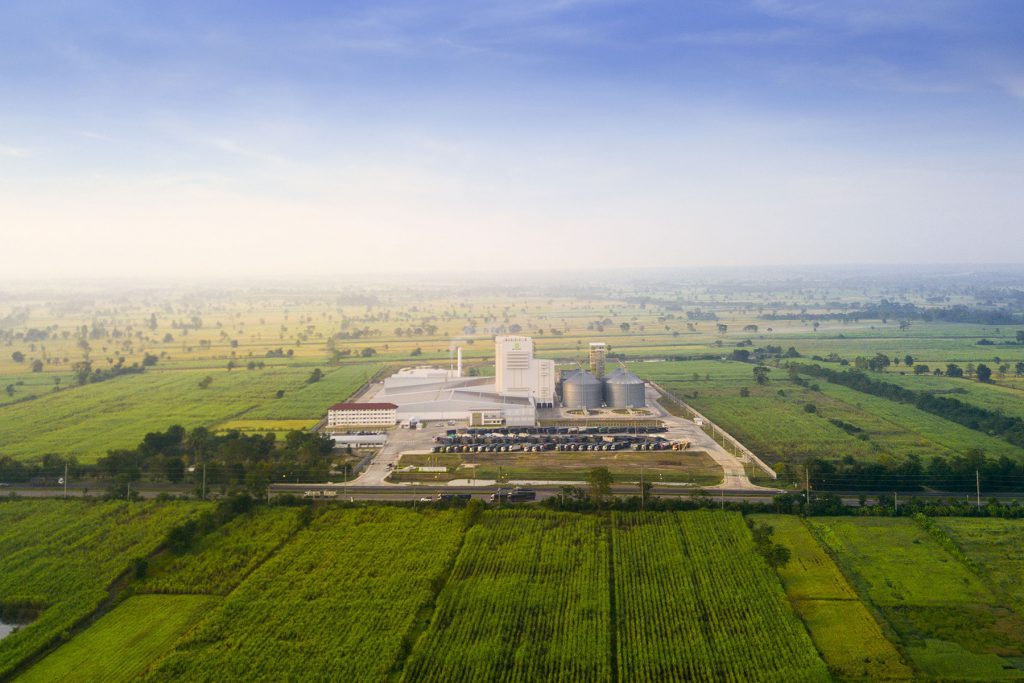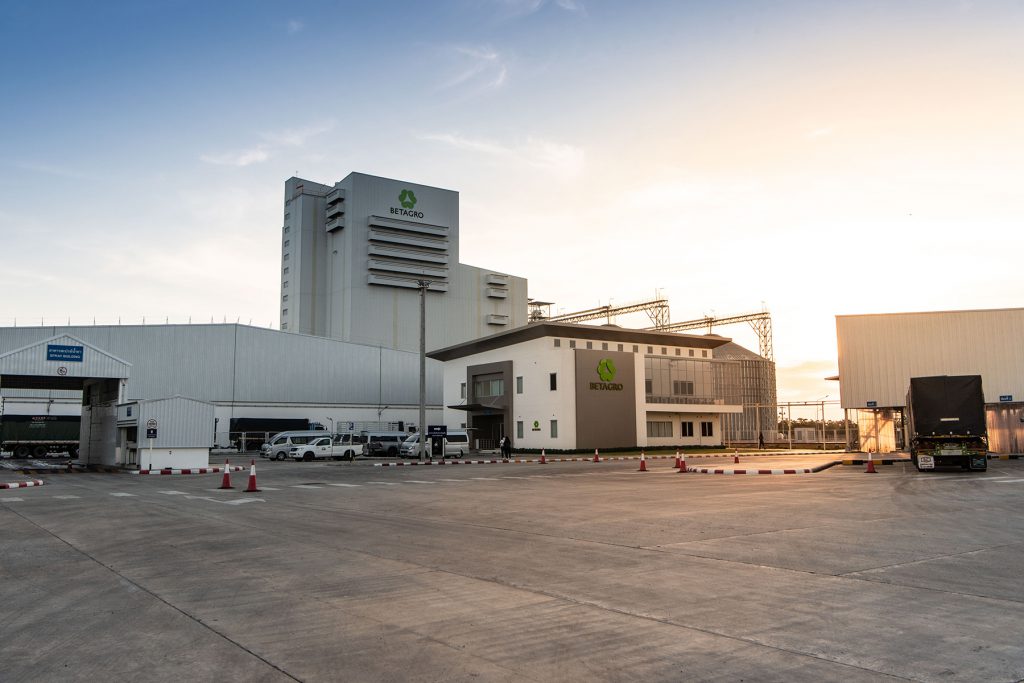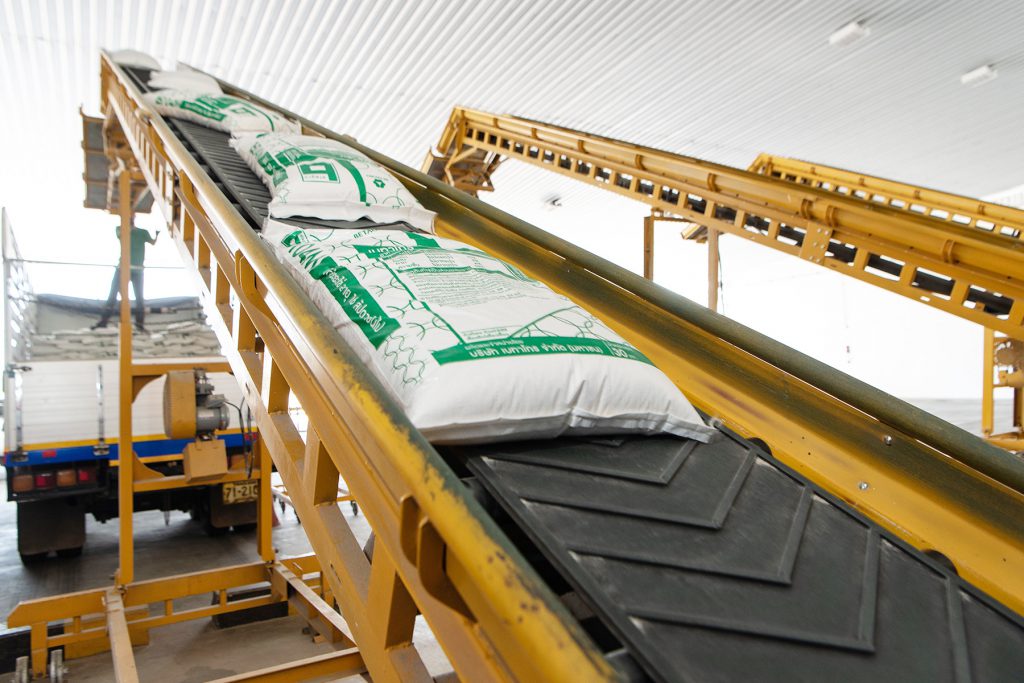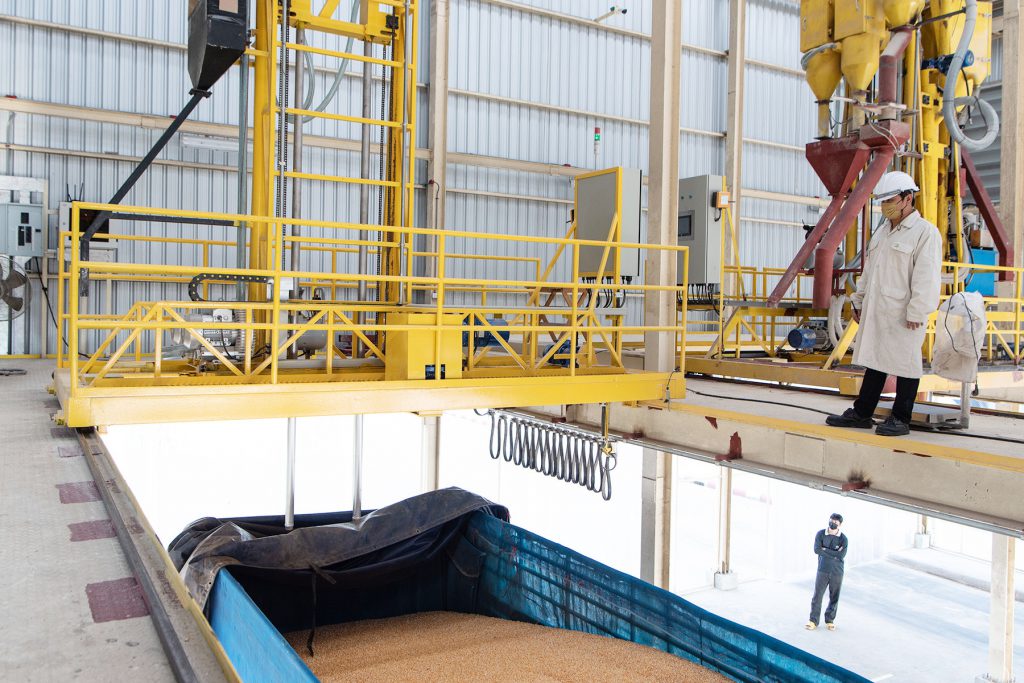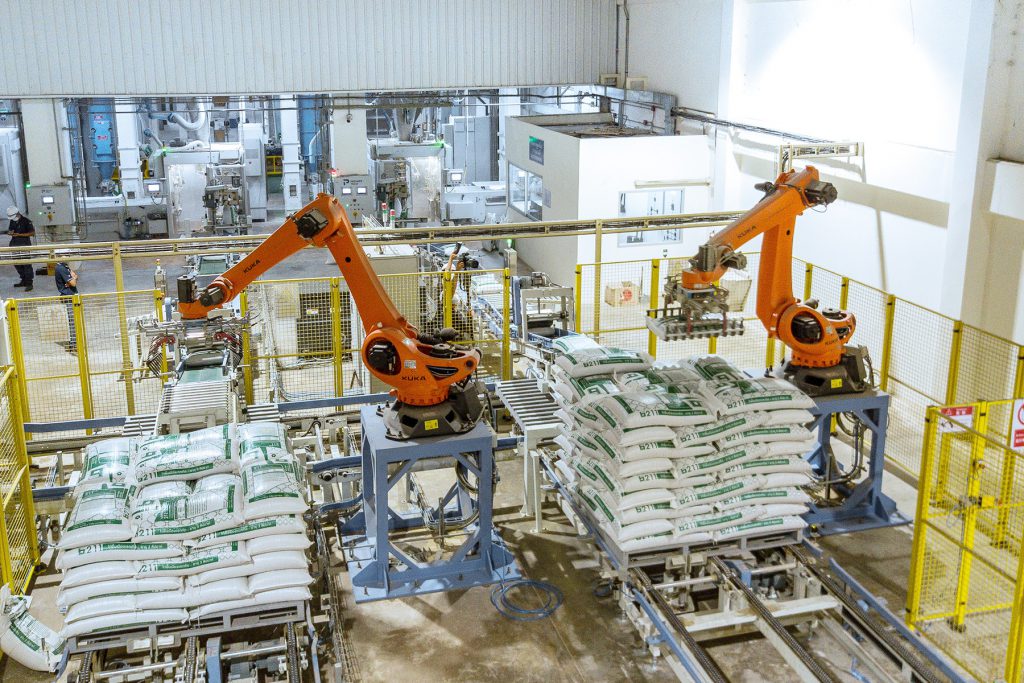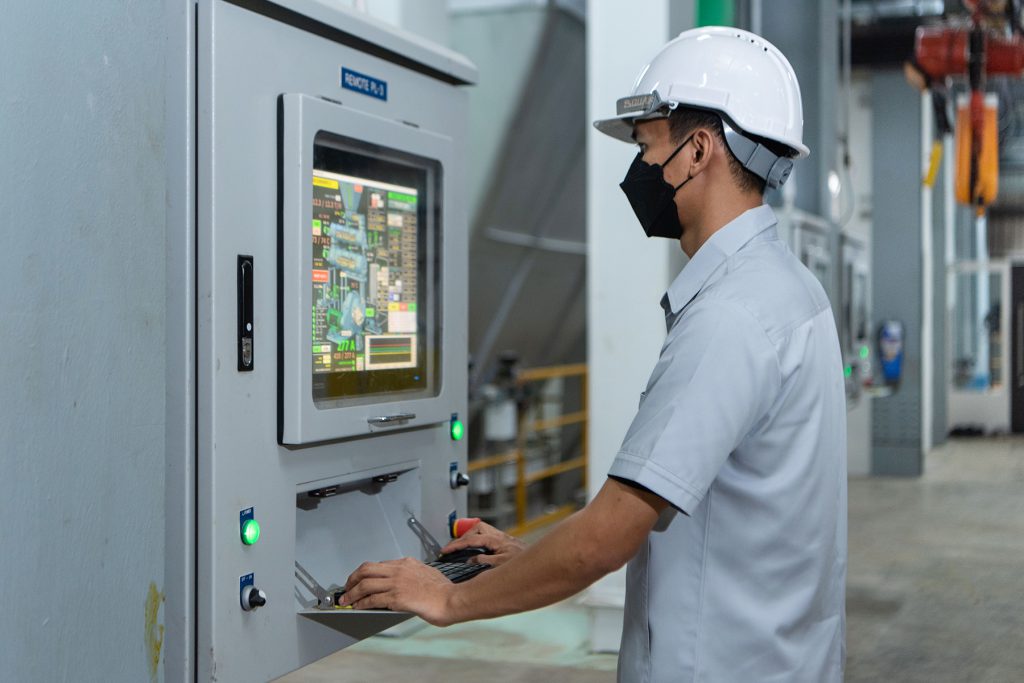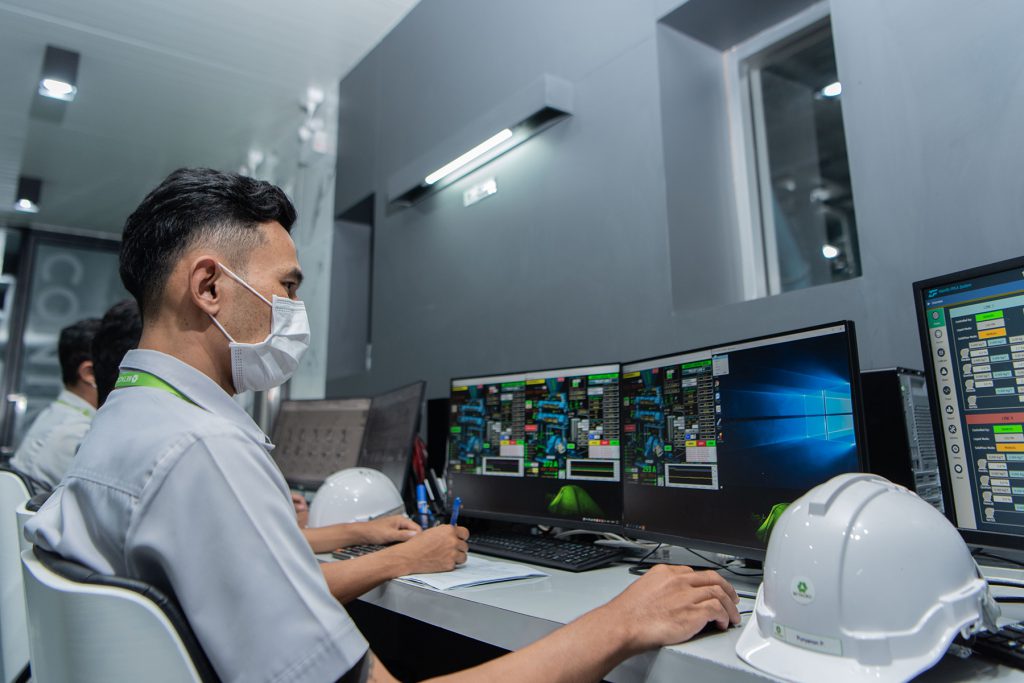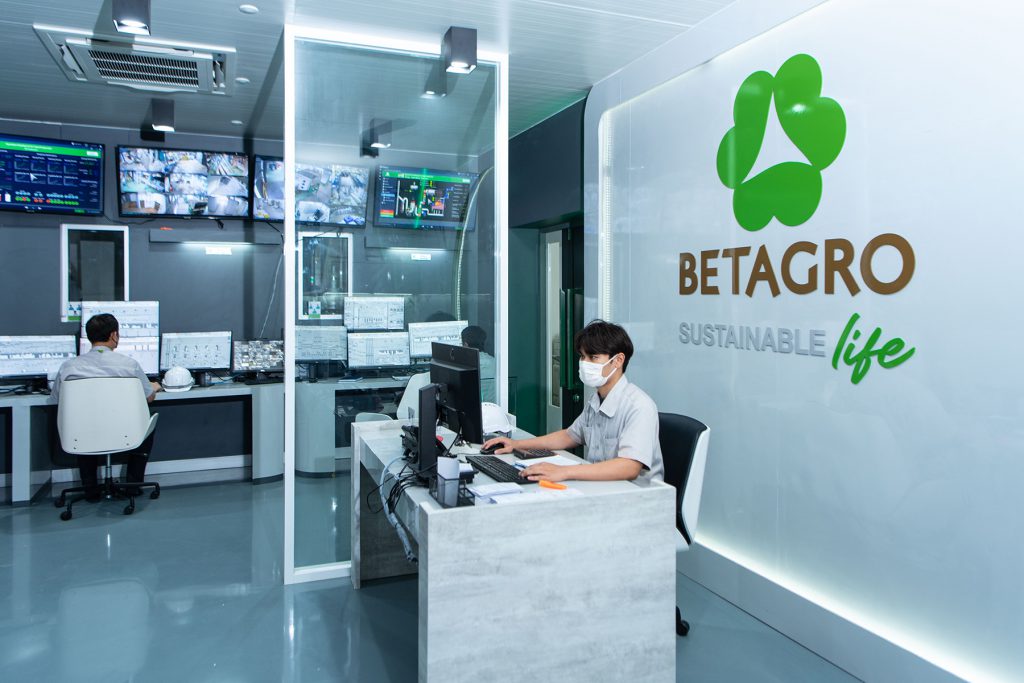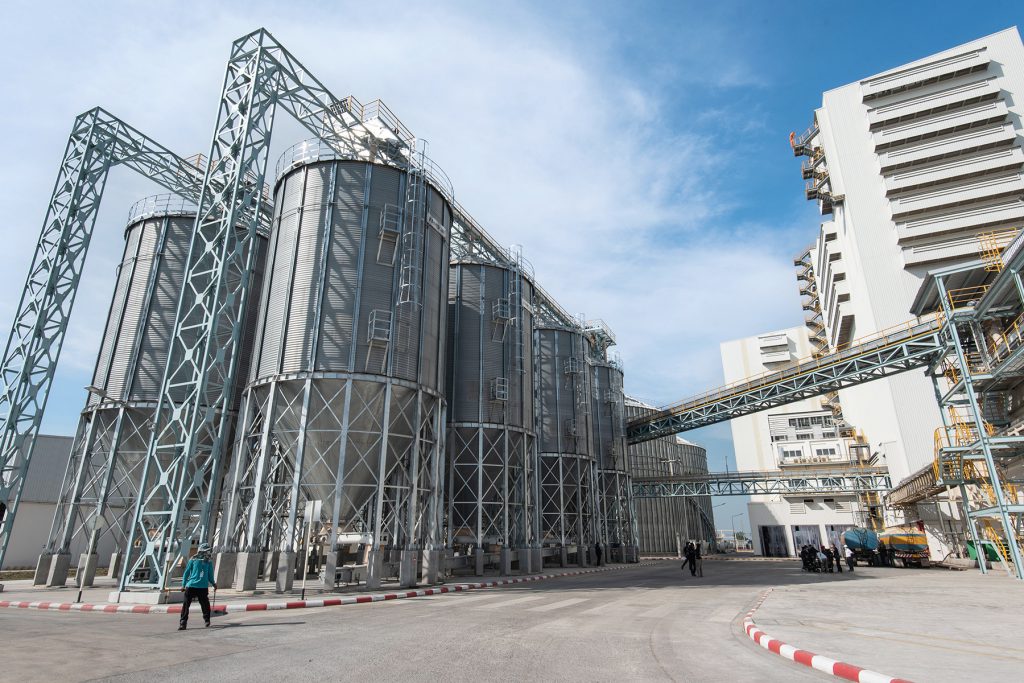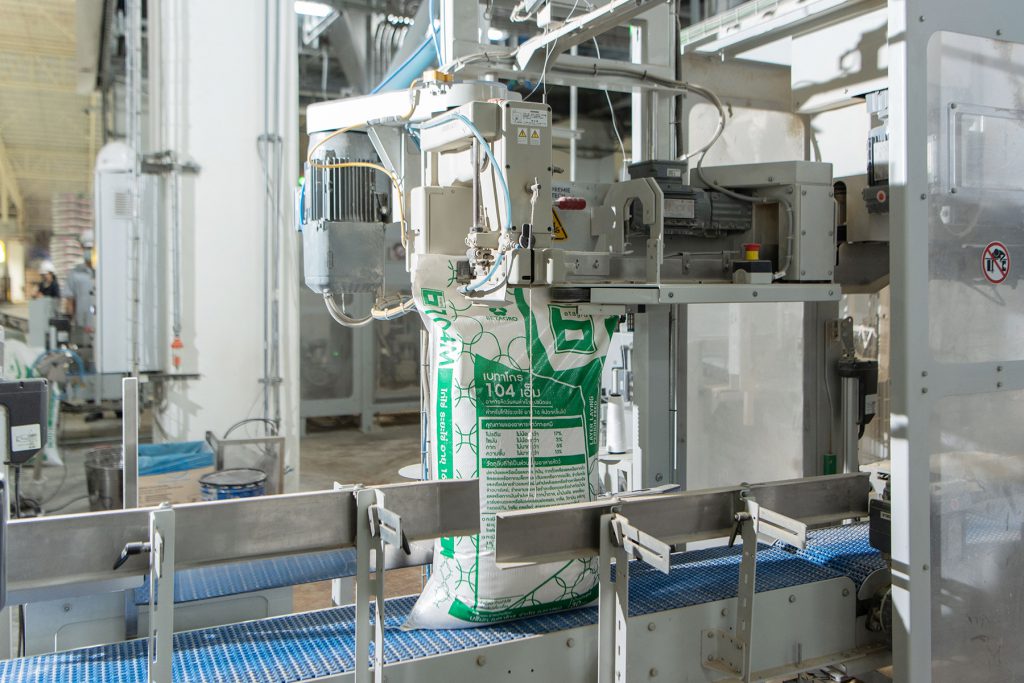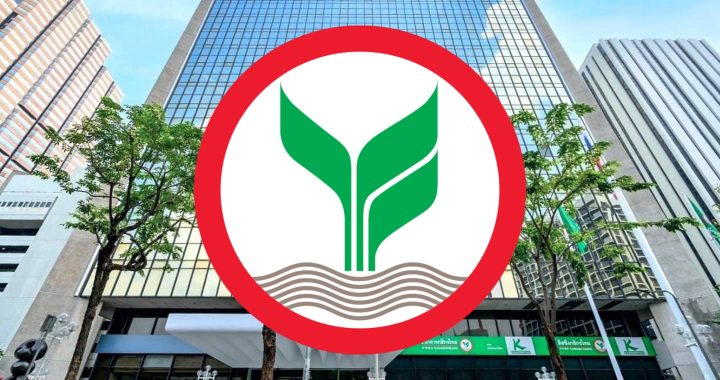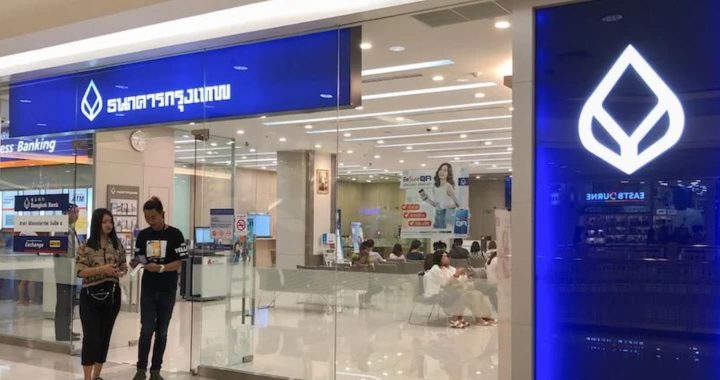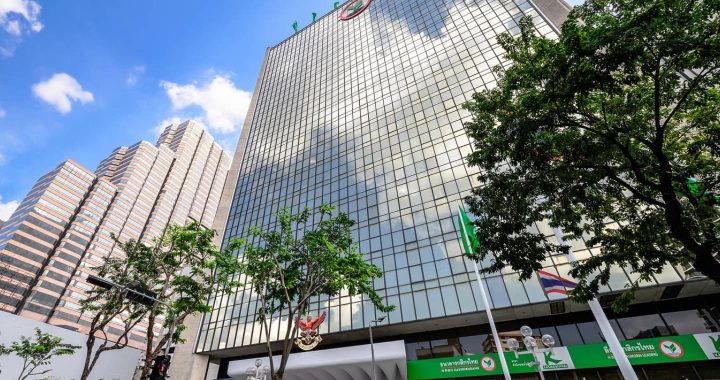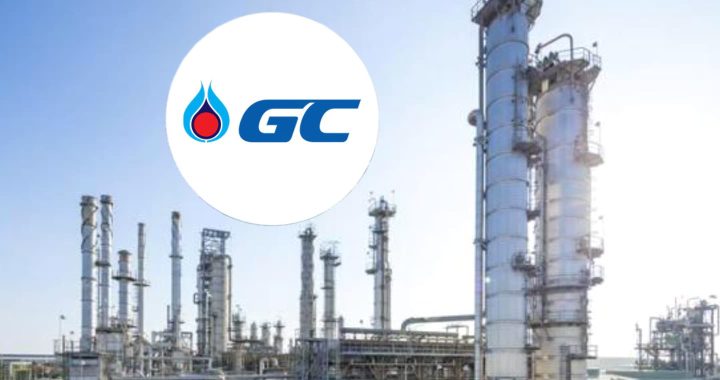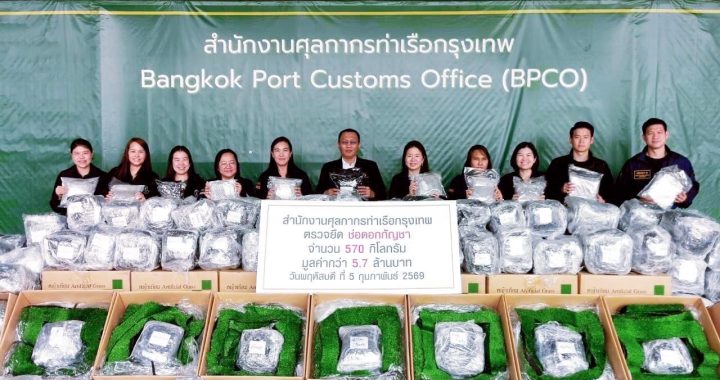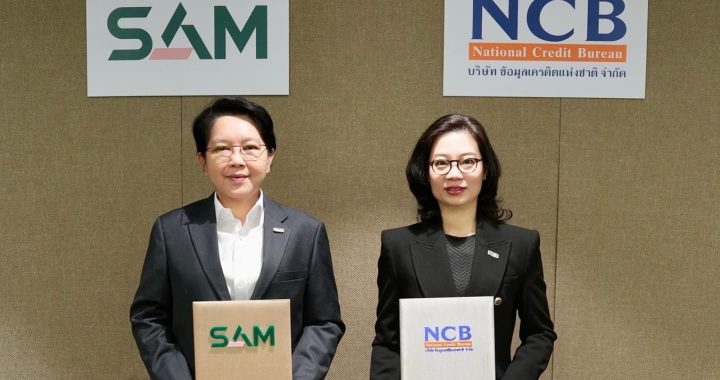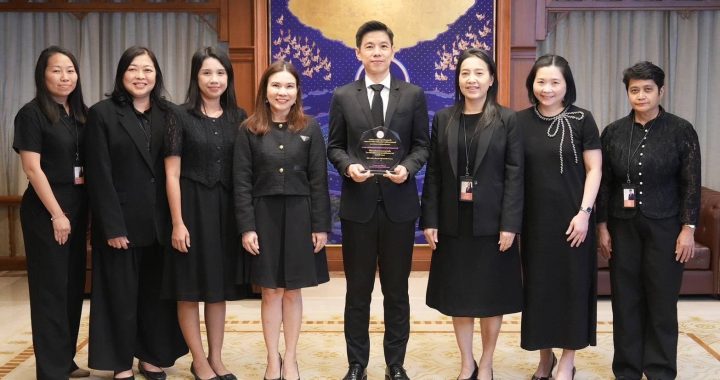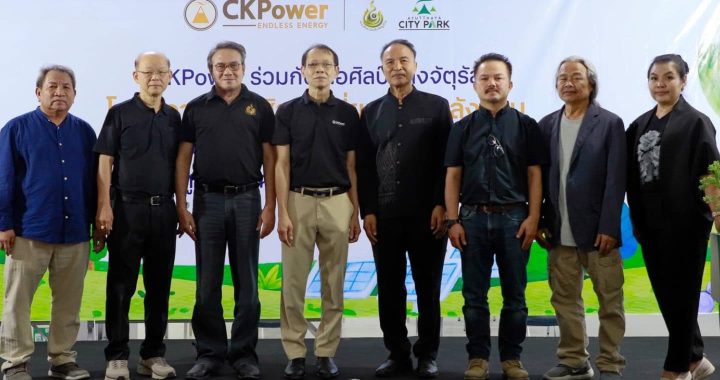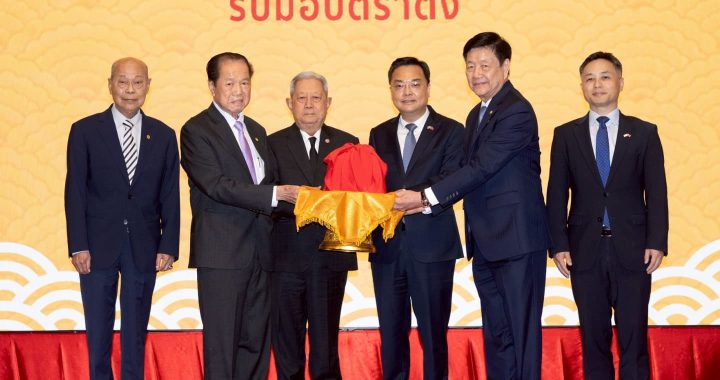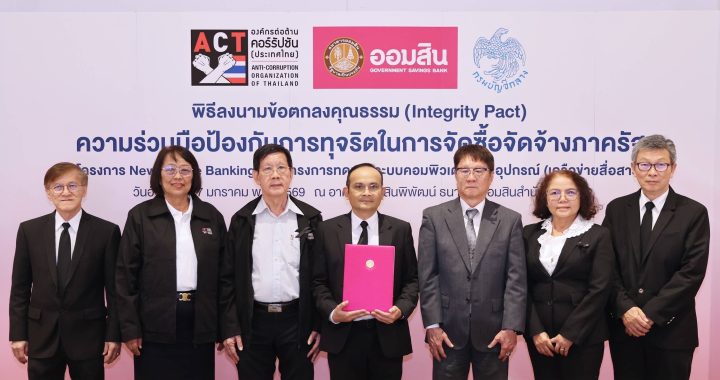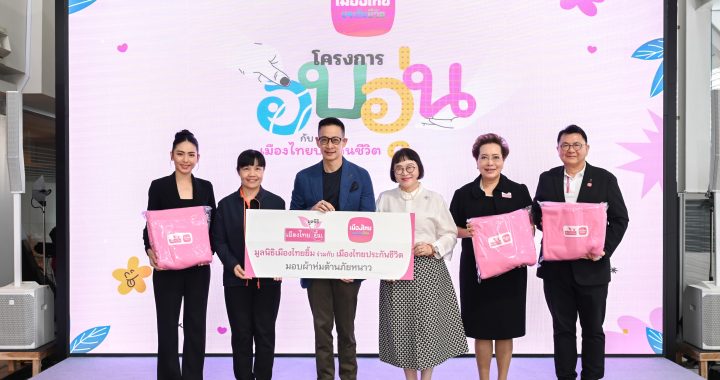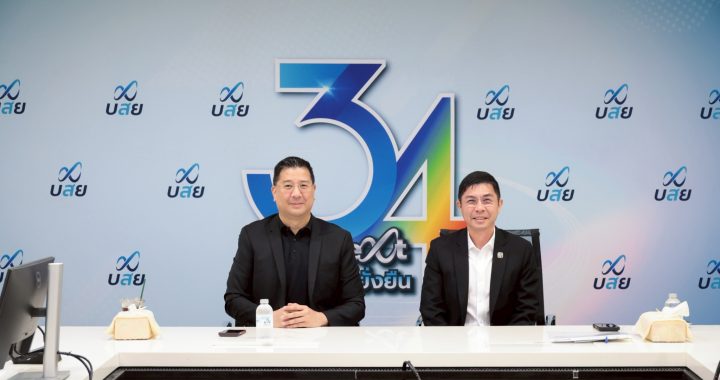Betagro launches Nong Bun Mak feed mill in Nakhon Ratchasima
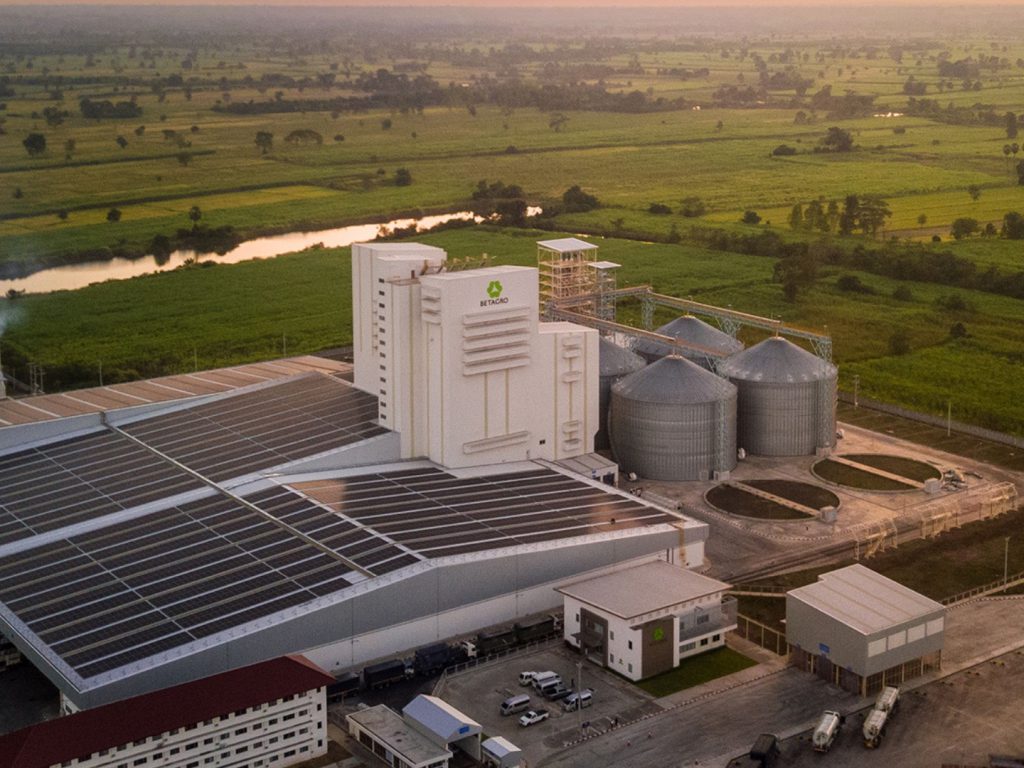
Betagro PCL (BTG), Thailand’s world-class branded food company, has elevated its agro-industrial business group’s supply chain by launching an advanced feed mill in Nakhon Ratchasima. The Betagro Feed Mill at Nong Bun Mak is the first fully intelligent plant that employs new technology in the production process and resource management with IoT (Internet of Things) connectivity and automation. This ‘smart factory’ has pursued sustainability through the ESG (environmental, social and governance). Therefore, its annual production capacity of over 600,000 tonnes output raises Betagro’s combined feed production capacity by 18% to more than four million tonnes overall output per year that will bolster the group’s competitiveness and sustainably meeting growing demand for animal feed.
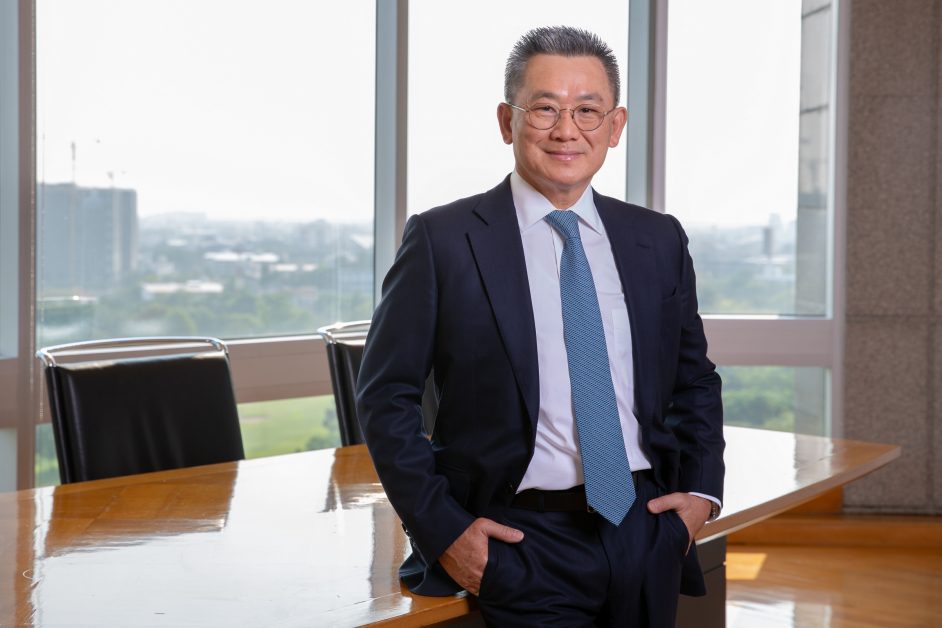
Mr. Vasit Taepaisitphongse, Chief Executive Officer and President of BTG, said it has been the company’s policy to upgrade its supply chain from the upstream phase to downstream under the theme of ‘Proactive Sustainability.’ The Nong Bun Mak feed mill serves as a testament of BTG’s objective to realise sustainability innovations. The mill costs more than 1.4 billion baht in outlay and has incorporated latest technologies and innovations to achieve maximum efficiency in production and resource management. It is a fully-fledged ‘smart factory’ that will serve as a model for BTG’s other plants in the future.
The Nong Bun Mak is BTG’s third largest feed mill producing a variety of animal feed for swine, laying hens and broilers by applying IoT and automation technology to good use. The mill is running at 48% of its production capacity and the rate will be ramped up to 100% by the end of this year. As a result, that ensures more than 600,000 tonnes a year in incremental output, raising BTG’s overall output by 18% to more than four million to serve markets in Thailand’s northeast and central regions, and Lao PDR. The Nong Bun Mak feed mill has been equipped with the logistics management systems to ensure speedy and on-time delivery of products, while helping the planning of work that meets the needs of customers more efficiently.
In addition, the mill comes with modern technology to enhance management in various dimensions, such as the factory management system (Smart Dashboard), sampling and quality inspection system (Smart Sampling), automatic controlled raw material storage system (Smart Silo), an automatic raw material storage and conveying system (Smart Bulk) and the use of robots in packing and conveying (Auto packing & Robot). The investment at Nong Bun Mak feed mill will raise efficiency in producing quality and safe animal feed, reducing losses which are risks in the production process and transport system, and creating a competitive advantage as well.
BTG also pursues sustainable growth by observing the ESG principles. This smart factory is helping to build a strong social foundation by creating opportunities for farmers to grow together, providing jobs in the community, and upgrading technology skills for local people. It also promotes the use of clean energy that is environmentally friendly, for example, employing an energy-saving steam generation system (Smart Boiler) from biomass fuel and power from solar rooftop system. The solar rooftop contributes about 20% to the plant’s 2.8-megawatt clean energy output that reduces carbon dioxide emissions by about 1,900 tonnes per year.
Mr. Vasit noted that the trend of the animal feed industry in 2023 is for a continued growth which according to the Thai Feed Mill Association would grow by 4.8% from 2022 to 19.99 million tonnes resulting from the increased demand for swine, broiler and laying hen production. BTG’s move towards the smart factory concept with IoT combined with complete automation, spearheaded by the Nong Bun Mak feed mill, represents a key upstream value chain in terms of production base and a main thrust in making BTG a world-class branded food company that grows steadily and sustainably, he concluded.



